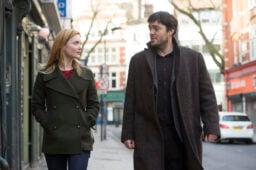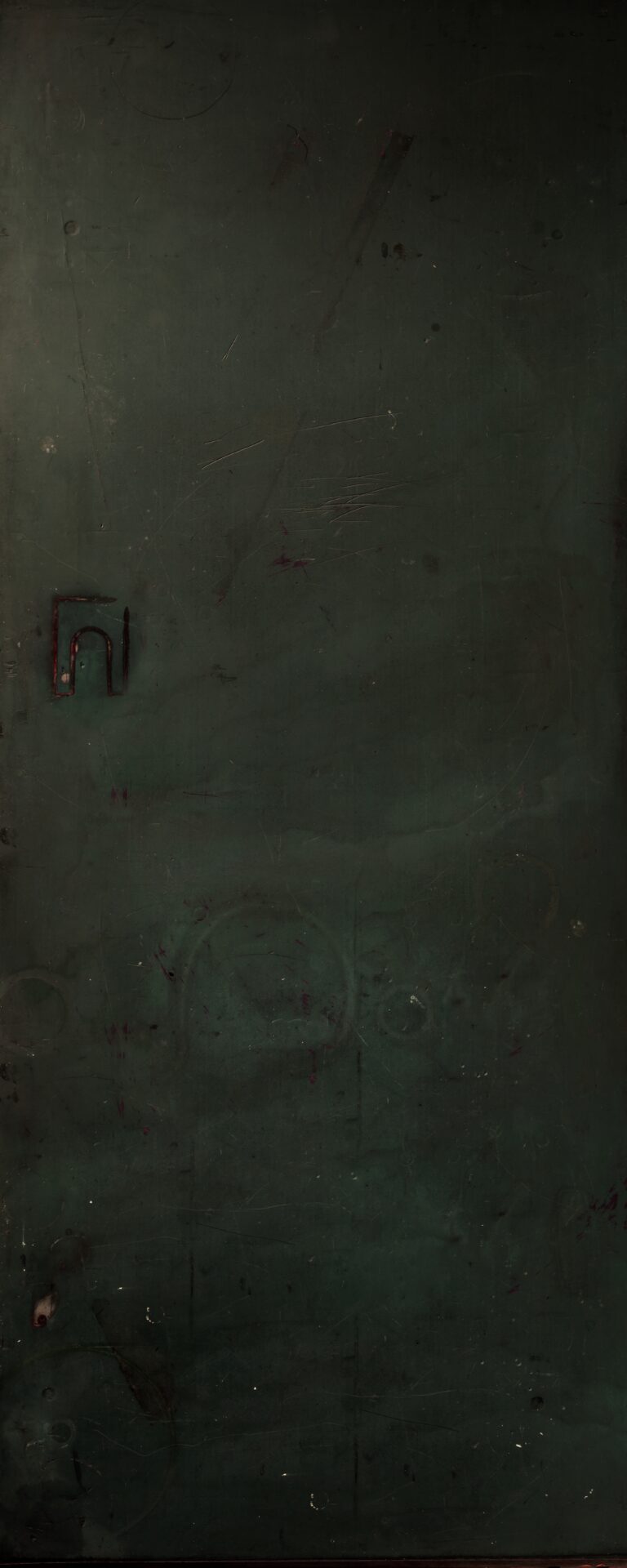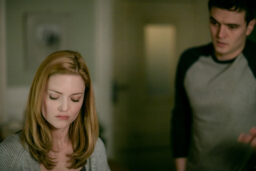Strike and Robin’s Early Years
‘Christ Almighty, of course I’m in therapy!’ said Lucy, in a furious whisper, as somebody, probably Greg, now full of banana cake, walked past the sitting room door and headed upstairs. ‘After that bloody childhood – aren’t you?’
The Running Grave, Robert Galbraith
Strike and Robin had very different childhoods. Strike’s was chaotic, whereas Robin’s was stable and secure, but traumatic incidents at university set them both on the paths which have now led to their partnership. However varied their lives, they both draw on what they experienced in their youth in their work. What do we know so far about their childhoods and how they’ve been formed by their early years?
‘Strike had once tried to count the number of schools he had attended in his youth, and had reached the figure of seventeen with the suspicion that he had forgotten a couple.’
The Cuckoo’s Calling, Robert Galbraith
Strike’s childhood was unstable and fragmented. Strike’s father, rockstar Jonny Rokeby, never wanted anything to do with him as a child and the only meetings Strike has ever had with him were scarring. Rokeby appears to want a relationship now that Strike is becoming well known in his own right, but Strike as yet wants nothing to do with him.
He was brought up by his mother, supergroupie Leda Strike, who dragged him and his half-sister Lucy all over the country, from school to school, house to squat to camp, in pursuit of the next enthusiasm or man. At one point they spent six months on a commune in Norfolk, a place Strike and his sister hated and which reappears in Strike’s life when he finds that the Universal Humanitarian Church, which he and Robin investigate (The Running Grave), is based there. At other times they lived in Brixton with a white Rastafarian, or various squats in Whitechapel. Lucy and Strike saw many nightmarish spectacles in their childhood; a psychotic youth fighting an invisible devil in a basement flat in Shoreditch, a woman sobbing about the brain damage inflicted on her toddler son by a violent boyfriend.
Nevertheless, his difficult upbringing taught Strike a lot. He possesses a finely honed sense for the strange and the wicked thanks to the things he witnessed, and in his youth he developed an advanced set of social skills, thanks to having to constantly fit in with new people in new places. He also has a cabbie’s knowledge of large parts of London because of the many places he lived there, and his knowledge of Latin comes from stealing the books of a patronising alcoholic who shared one of their squats.
Strike becomes more aware of his mother’s failings as he ages, but knows he was loved. She wasn’t, he tells his sister, malicious, just bloody careless.
‘He carried memories like this from his childhood, especially those parts of it that he had spent in Cornwall: the glitter of the sea as you first saw it on a morning as blue as a butterfly’s wing; the mysterious emerald-and-shadow world of the Gunnera Passage at Trebah Garden; distant white sails bobbing like seabirds on blustery gunmetal waves.’
Career of Evil, Robert Galbraith
There was one thread of stability in Strike’s childhood – the extended stays with his aunt and uncle, Joan and Ted Nancarrow, in St Mawes, Cornwall. His real local is there, the Victory Inn, as are long time friends like Dave Polworth who promised to take him to visit the local smugglers’ caves when he was six years old. It is also where he met Ilsa, who later married one of his London friends, Nick. His unusual first name is Cornish, Cormoran was appropriately the name of a local giant, and the landscape is still a touchstone.
Joan and Ted’s house, in the town they both grew up in, is the same as it was throughout Strike’s childhood. Visiting as Joan becomes very ill, he recognises the wallpaper is the same as when he used to climb into bed with them, eager to go to the beach, as a small child.
‘The roofs of the pale gold Georgian houses lining the square wore mantels of bright, frozen icing.’
The Silkworm, Robert Galbraith
By contrast, Robin’s childhood looks like the epitome of middle-class stability. Her parents still live in the home she was brought up in, in the small Yorkshire town of Masham and when she starts working for Strike she plans to marry her fiancee Matthew in the church, St Mary the Virgin, familiar to her from the Christmas, Easter and harvest services she has attended all her life.
In the tempestuous run up to her marriage, and after her divorce, she returns to the same bedroom she had as a child, a bedroom which seemed like the only safe space on earth after the traumatic attack which led to her leaving university. The walls were shocking pink back then, a mistaken decorating choice she made when she was sixteen. She did not want to ask her father to repaint, so covered the garish glare with as many posters as possible. Her mother redecorated when she went to live with Matthew in London, but she can still almost see the large picture of Destiny’s Child facing her at the foot of the bed. Her brothers still drink at The Bay Horse, where she celebrated her A-level results with Matthew. After her divorce, she learns Matthew took his new wife Sarah there over Christmas, while she stayed in London working long hours staking out the house of a billionaire (The Ink Black Heart). She is glad she had the chance to stay away.
‘Mr Ellacott was asleep, his head back in the armchair closest to the fire and the dog. Gently he snored, with his spectacles halfway down his nose.’
The Silkworm, Robert Galbraith
Robin’s parents are still together and her father, Michael, rather than a rock star who wanted nothing to do with her, is a professor of sheep medicine, and the editor of ‘Sheep Management’. Robin comes from farming stock, and though her uncle inherited the family farm, she rode her Highland pony Angus on his land, as well as honing her driving skills there after dropping out of university. Her mother, Linda, is an intelligent woman of many interests who does her best to support Robin, even though she worries Robin’s work with Strike often puts her in danger. She willingly takes on the preparations for Robin’s wedding when her daughter is too busy, gives her the old family Land Rover, and though she does not understand her daughter, she tries to do so. Linda likes Robin’s new boyfriend, Ryan, who keeps her and her husband informed when Robin is undercover (The Running Grave), though Linda’s overprotectiveness is in danger of driving Robin up the wall.
‘Why did the memory of the child who’d thought she was invulnerable, who’d never known cruelty, give her more pain than pleasure?’
Troubled Blood, Robert Galbraith
Robin grew up with three brothers, but the eldest, Stephen, admits that when she was a child they were often ‘dicks’ to her. They laughed at her when she confessed at eight years old that she was going to catch robbers, for no better reason than that she ought to be laughed at, given that she was a girl and their sister. As Robin grows in confidence through her work and faces her old demons in therapy she sees that her family role had been that of ‘easy child’, the non-complainer, the conciliator. Her brother Martin was always the problem child. It was a role she played for a long time. Matthew is surprised and disconcerted when she begins to stand up for herself more after starting working for Strike, as she had always previously been first to apologise after a row. Robin wonders why she had not admitted for so long that her secret interest in investigative work had long pre-dated meeting Cormoran Strike.
Robin still sometimes feels invisible in her family. Even though her brother Martin volunteers to punch Matthew again, having already done so once on her wedding day, she is sure her mother picked out the bath oils he has supposedly given her for her birthday. In the same way she thinks the jumper from Stephen was chosen by his wife Jenny, and the dangly earrings from Jonathan, her youngest brother, suggest a new girlfriend. She hopes she might get to take her niece Annabel to the beach in Skegness for a donkey ride some day, though she doubts Stephen and Jenny would see Skegness as a desirable weekend destination.
Nevertheless, an observant childhood spent in the company of three brothers however has given Robin an unusual and accurate insight into the frequently contrary reaction of males to female concern, which is very useful when it comes to dealing with Strike.
Her family realise that Robin is changing, and, as her favourite cousin Katie tells her, travelling in a different direction to the rest of them. Her difficult brother Martin has a child on the way, and Stephen is expecting his second, while Robin is living on her own for the first time and realising the threat that being a mother would be to the job she loves, and for which she has already sacrificed a marriage, her financial security, her sleep and her safety.
‘She hadn’t called Leda ‘Mum’ since she was fourteen and was explicit, these days, about the fact that she’d considered their late aunt, Joan, her true mother.’
The Running Grave, Robert Galbraith
Strike has eight half siblings, most of whom he does not know, but he grew up with Lucy, his half-sister through Leda. Strike is very fond of her, though he finds her yearning for neatness, order and security wearing, and she can’t hide the fact she worries about him, his work and lack of a family.
Lucy left Leda and their shared chaotic life at fourteen to live with Ted and Joan full-time while Strike felt compelled to stay. Leda at the time was living with Jeff Whittaker, a failed musician with a gloating, open pleasure in everything that was sadistic and demonic. Strike only felt safe leaving to read History at Oxford because he knew Shanker, a lost boy Leda had taken in, was keeping an eye on her. Shanker couldn’t be there all the time though and Strike’s mother died of a suspicious overdose, not long after giving birth to her third child, and before Lucy had the chance to resolve her issues with her mother. After giving evidence against Whittaker at his trial for her murder – he was found not guilty – Strike left university to join the military. Giving up his degree, he knows, disappointed his sister and aunt.
When he compares Robin and Lucy, Strike thinks Robin is the more courageous of the two. Both women have been touched by violence and sadism. Lucy has reacted by burying herself where she hopes it would never reach her again, in the suburbs with her husband Greg. Robin has reacted by facing it almost daily, investigating and resolving other crimes and traumas. It is only when investigating the UHC that Strike sees perhaps his younger sister is strikingly heroic in her own way.
Strike and Robin have been through huge changes since they began working together, and are developing new ways of thinking about their pasts. Perhaps those new ways of thinking about the past will also begin to change how they both see their futures.




